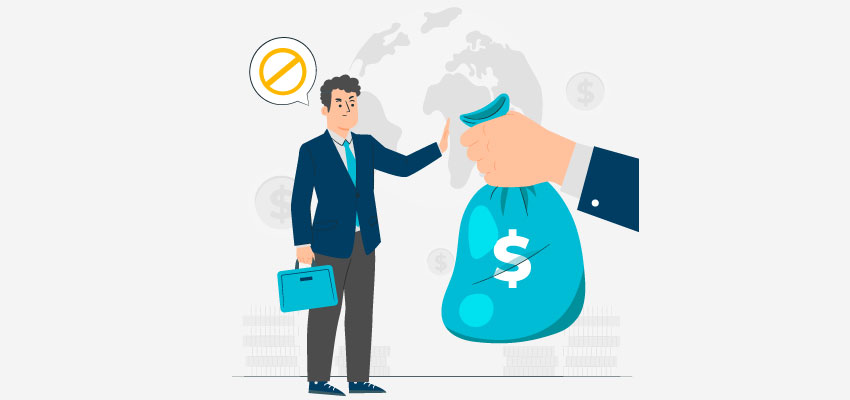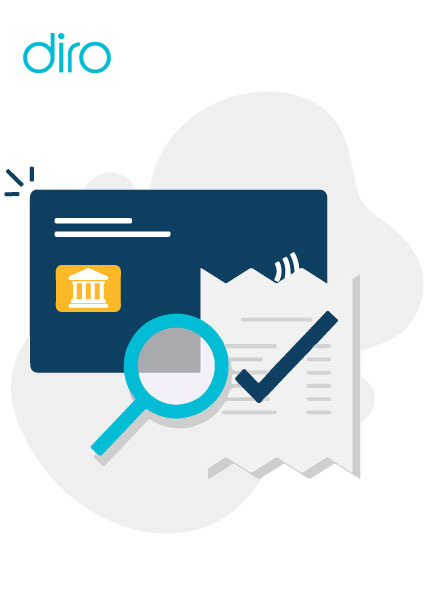Risks of Not Verifying Businesses During Onboarding

Business verification is the backbone of businesses that want to scale quickly while maintaining security & reputation. Having a KYB pipeline isn’t just a “nice to have”; it’s a way to mitigate risks in the world of business. When you bring a company into your network without knowing who actually owns it, chances are you’re exposing yourself to risks.
Hidden ownership means the true beneficiaries, the real people controlling the company. Ultimate beneficial owners or UBOs are hidden behind layers of shell entities, offshore accounts, or nominee directors. On paper, everything might look fine. But in practice, you could be exposing your organization to criminal liability, reputational collapse, and costly regulatory battles.
According to a 2023 Global Financial Integrity report, anonymous companies are estimated to facilitate over $1 trillion in illicit financial flows annually.
This isn’t a problem just for the regulators and regulatory bodies; it’s a risk every business that onboards other businesses has to deal with.
Common Business Onboarding Risks without Verification
Here’s a breakdown of some huge risks businesses could be exposing themselves to without verifying the UBO.
1. Money Laundering and Financial Crimes
The most common but the most serious risk is Money Laundering & Financial Crime. If you onboard a company with concealed owners, you might unknowingly help them funnel dirty money into the legitimate economy. They can hide funds obtained via illegal methods in their regular business transactions, such as invoices, contracts, and bank transfers. Once a business figures it out, it’s already too late.
In 2020, the FinCEN Files leak revealed that global banks processed over $2 trillion in suspicious transactions, many linked to shell companies with hidden owners. Even well-known financial institutions faced billions in penalties for their involvement, intentional or not. For your business, that risk translates into:
- Multi-million-dollar fines
- Loss of banking relationships
- Revoked licenses
- Permanent public trust damage
If there’s one list you don’t want your business to be a part of, it’s the list of businesses being investigated for Money Laundering.
2. Reputation Damage and Trust Erosion
Unlike money, reputation isn’t something that you can see flow in and out of your accounts. Loss of reputation for a business shows up later and leaves far more lasting impact than loss of funds.
When stakeholders discover your business partners with companies that are conducting illegal activities, the assumption is rarely in your favor. Clients, investors, and even your own employees may wonder what other risks you’re overlooking.
For Example, after the Panama Papers exposé in 2016, hundreds of companies lost contracts overnight simply due to their association with entities involved, even if their activities weren’t illegal.
Rebuilding trust after such an incident isn’t just PR work; it often requires restructuring teams, overhauling processes, and sometimes replacing leadership. All this happens while your revenue keeps dropping.
3. Regulatory Non-Compliance
Regulators in the US, UK, EU, and many other jurisdictions now demand full disclosure of beneficial ownership information. Laws like the U.S. Corporate Transparency Act and the EU’s Fifth Anti-Money Laundering Directive (5AMLD) are designed to eliminate corporate anonymity.
If you onboard a client or partner without verifying their true owners, you risk:
- Heavy fines (sometimes up to 10% of annual turnover in the EU)
- License suspensions
- Increased audits and compliance costs
And once you’re on a regulator’s “watch list,” future transactions and partnerships may face extra scrutiny, slowing down deals and increasing legal fees.
4. Hidden Conflicts of Interest
Imagine signing a joint venture deal, only to later discover that the unseen majority owner of your partner company also sits on the board of your direct competitor. That’s the kind of mess hidden ownership can create.
Without transparency, you can’t spot overlapping interests that could bias decision-making, compromise contract terms, or give rivals a strategic advantage. These conflicts can spiral into lawsuits, lost market opportunities, and fractured partnerships.
5. Zero Accountability
Not knowing the UBO means pinning the responsibility for illegal activities becomes a challenge. If a hidden owner makes a decision that puts your business at harm, such as siphoning funds or violating sanctions, it can be next to impossible to hold them personally liable.
Fraudsters and companies engaging in illegal activities thrive because of this lack of accountability. If your business is already at risk, then even terminating the relationship may not make a difference.
6. Weakened Corporate Governance
Strong corporate governance depends on knowing who’s steering the ship. Hidden ownership creates blind spots in oversight, allowing decisions to be made by people with no visible connection to the company.
This can hurt:
- Internal controls – Making fraud easier to commit and harder to detect.
- Strategic direction – As agendas are influenced by invisible stakeholders.
- Board effectiveness – Because members can’t accurately assess risks or align objectives.
A World Bank study found that companies with opaque ownership structures are more than twice as likely to engage in corrupt practices compared to those with transparent governance.
Steps Businesses Can Take to Reduce Risks?
Fortunately, there are a couple of things every business can implement to reduce the risk of fraud that comes with hidden ownership. Here’s what you need to do:
1. Enhanced Due Diligence
Enhanced Due Diligence or EDD is a step beyond your ordinary KYB checks. EDD, as the name suggests, goes deeper into the verification and requires documents that may uncover the hidden owners.
Documents such as corporate registries, litigation databases, offshore leaks (e.g., Panama/Paradise Papers), and investigative reports to verify who’s really behind a company.
2. Demand Beneficial Ownership Disclosure
One thing that every business should make part of their KYB pipeline is requiring partners to provide verified documentation of their beneficial owners. Consider adding contractual clauses making false disclosure grounds for termination.
3. Use Technology-Driven KYC/AML Tools
AI-powered monitoring tools can flag suspicious transactions, detect anomalies, and cross-check owners against sanctions lists and politically exposed persons (PEPs). DIRO’s business verification solution can instantly flag potential issues in a document and verify the information directly from the issuing source. This eliminates the risk of fraud.
4. Collaborate Across Industries
Partner with banks, regulators, and other businesses to share intelligence on suspicious entities. The more data points you have, the harder it is for bad actors to hide.
Conclusion
Onboarding companies without knowing their true owners means you’re opening your business to unknown risk. The fallout from money laundering, regulatory violations, or reputational collapse can take years (and millions) to recover from.
Transparency isn’t just a compliance checkbox; it’s a competitive advantage. Companies that rigorously vet their partners not only avoid trouble but also signal to the market that they’re serious about integrity.













